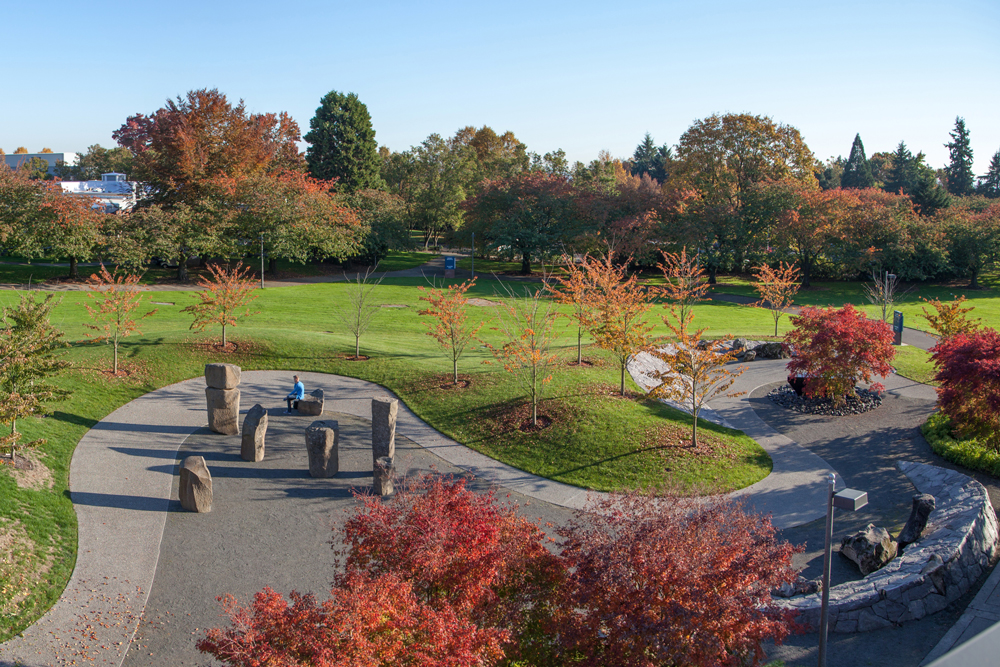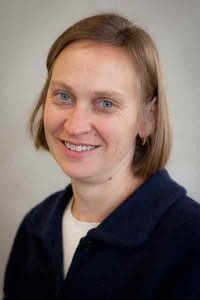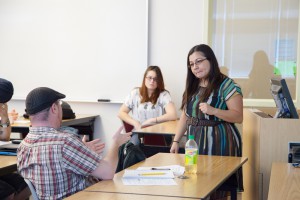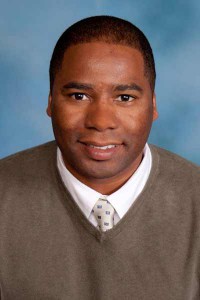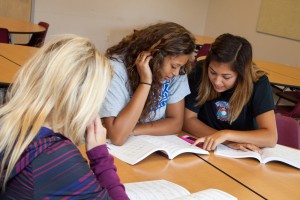The Personal Connection
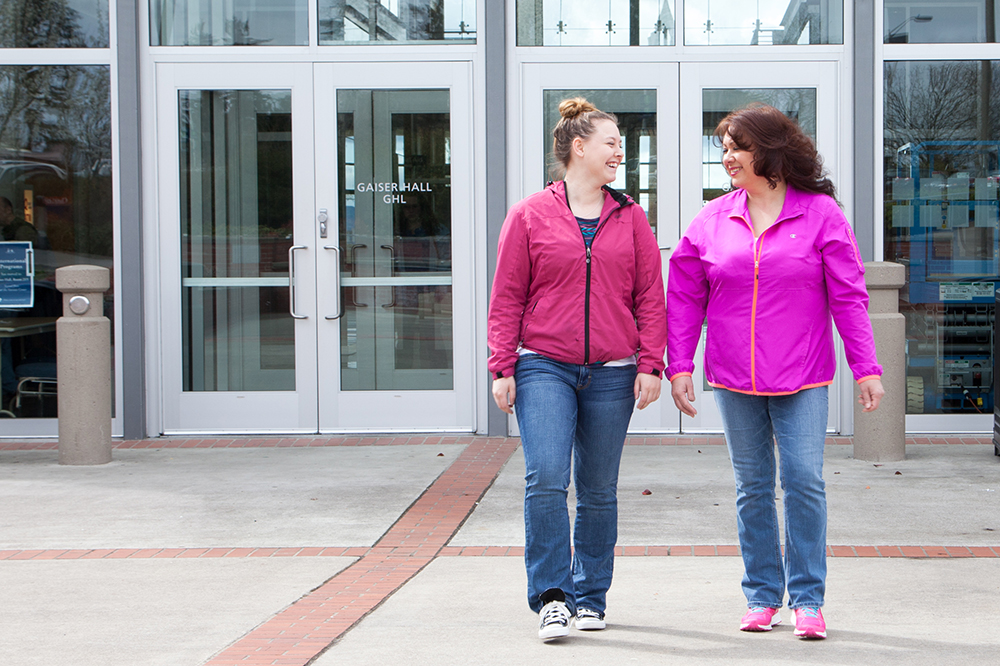
“It’s a really great, interactive relationship where you’re able to talk to someone about what you’re going through,” says Clark student Kassidy Quade, left, about her experience with First Year Experience mentor Cindy Magallanes.
When Princeton McBride started classes at Clark College in fall 2013, he knew he could use some help getting adjusted. Not only was he new to college, but he was new to the area, having moved to Vancouver from his native South Carolina shortly after graduating from high school. The move itself was a major adjustment, the 18-year-old says: “I didn’t even own a rain jacket.”
So when McBride saw a message in his student email about the opportunity to be connected with a mentor through Clark’s First Year Experience program, he jumped at the chance. “I immediately knew that I needed someone who would guide me throughout my first year of college,” he said.
As luck would have it, McBride didn’t wind up with just any mentor–he was paired with Matt Rygg, Clark’s Dean of Student Success and Retention. The two began meeting regularly, sharing doughnuts and coffee as they discussed the challenges of moving across country and tackling new coursework, as well as McBride’s newly discovered passion for helping the homeless. Rygg shared his encouragement and his knowledge of the college’s systems and services with McBride, helping him navigate the challenges of his first year–a time when many students become overwhelmed and wind up dropping out. It worked: Today McBride is well on his way to completing his prerequisites to enter Clark’s highly competitive nursing program, and is also starting a new student club called Through the Eyes of Poverty that aims to create a stronger connection between the Clark community and the homeless community. He hopes to eventually earn a bachelor’s degree in nursing and to then transition to medical school to become a doctor of emergency medicine.
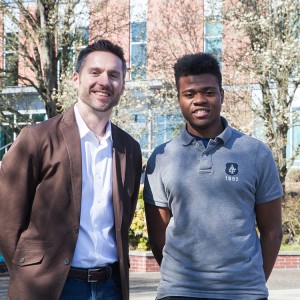
Princeton McBride, right, says his First Year Experience mentor, Matt Rygg, helped him “find the right path” during his first year at Clark.
“I have been really proud of the ways Princeton has invested himself on campus,” Rygg says. “He is doing well in his classes and has made good friends here. I recently walked by the fountain outside Gaiser Hall on the way to a meeting, and I saw Princeton sitting with a group of friends enjoying the sunshine and each other’s company. It made my heart glad to see him integrating so well into the Clark community.”
This is the goal of the FYE Mentor Program: Students get one-on-one support and advice from someone at the college, and college employees get the personal connection to students’ success that can sometimes get lost in day-to-day administrative work. It’s a win-win situation–one that research is showing can help keep students in school. Janette Clay, First Year Experience & Outcomes Assessment Support Specialist, says FYE has surveyed the students who have been part of the mentor program. This research found that the fall 2012 cohort of mentees (the program’s first cohort) fared significantly better than their peers. They earned a C or higher in 90.7 percent of their first-term courses, compared to 76 percent for first-term, degree-seeking students without mentors. And while 20 percent of all first-term, degree-seeking students didn’t return to Clark for winter quarter, 100 percent of the mentees did.
“Although the mentee cohorts have been relatively small so far, they do fare better in their courses and retain at higher rates than those students without a mentor,” says Clay. “As the program grows, we hope to see the effects of the positive relationships and the support that is provided by the mentors spread even further across the college.”
Kassidy Quade is immensely grateful to have met her FYE mentor, baking instructional technician Cindy Magallanes. “I’d been out of school for three years, I’d gotten my GED in January,” she says, sitting next to Magallanes in Gaiser Student Center, where the two met at least weekly during Quade’s first quarter. “With Cindy, I can talk to someone who’s a part of the school and who knows the school–which I don’t. And she’s always encouraging me. When I was writing my essays for English class–I’m horrible at writing–”
“But you aren’t horrible at writing,” interrupts Magallanes, laughing. “You did fine, right?
“I try to encourage her and give her that boost: ‘You can do it! I know you can!’,” Magallanes adds. “I remember being a student here and not knowing anyone at the college, and how scary that was.”
Magallanes enrolled at Clark in 2000 because she wanted to start her own bakery. At the time, one of her nieces was working at Lower Columbia College. “She called me the first night after classes and asked, ‘How’d it go?’ She called me the second night, too, and she just kept calling. She really wanted to make sure I kept going. I remember how important that was for me, how helpful. For me, the FYE mentoring program is a great way to pay that forward.”
Even after Quade’s and Magallanes’s mentoring partnership officially ended at the end of winter quarter, the pair continue to keep in touch. Quade, who is now in her second quarter of Clark’s paralegal program, says she would recommend the mentoring program to any student new to Clark.
“I think it’s a great program,” she says. “I say, get involved.”
Photos: Clark College/Jenny Shadley
